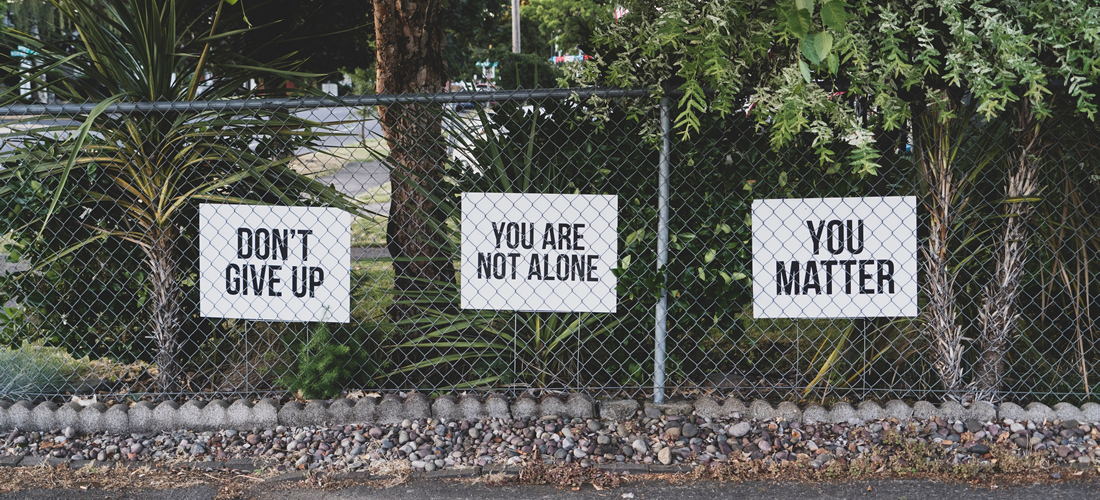Mental toughness can be defined as your ability to effectively navigate through life’s challenges, to bounce back from setbacks, and to persist in the face of adversity. It’s about having the resilience to handle pressure, the determination to keep going, and the grit to overcome any obstacles that stand in your way.
The importance of mental toughness in personal development cannot be overstated. Mental toughness acts as the fuel that drives you forward on the pathway to growth. It empowers you to tackle difficulties head-on, to embrace change, and to push beyond your comfort zone, enabling you to reach new heights in your personal and professional life.
The relationship between mental toughness and resilience is closely intertwined. While mental toughness is the driving force that propels you to face and overcome challenges, resilience is your ability to swiftly recover from those challenges, to adapt, and to grow stronger from the experience. Together, mental toughness and resilience create a powerful combination for personal development.
Strategies for Developing Mental Toughness
Developing mental toughness is a valuable endeavor that can significantly enhance your personal development and resilience in the face of challenges. Here are some strategies to help you develop mental toughness:
Cultivate a Growth Mindset
Cultivating a growth mindset is a powerful strategy for developing mental toughness. When you adopt a growth mindset, you understand that your abilities can be developed through dedication and hard work. You view challenges as opportunities to learn and grow, rather than as threats or insurmountable obstacles.
This attitude fosters resilience and enables you to bounce back from failures, thus enhancing mental toughness. Remember, nobody is born with mental toughness; it’s a skill that can be cultivated. Embrace the journey of learning and growing–your mental toughness will thank you.
Set Clear Goals
Setting clear goals is a powerful strategy for developing mental toughness. When you outline precise and achievable objectives, you create a roadmap for success. It’s not just about deciding where you want to go, but also determining the steps you need to take to get there. This process requires mental fortitude, as it pushes you to confront potential challenges head-on, anticipate obstacles, and find solutions.
The act of setting goals cultivates resilience, as it requires you to keep pressing forward and adjusting your plans even when things don’t go as expected. Every step you take towards your goals, no matter how small, strengthens your mental toughness as you learn to persevere in the face of adversity.
Build Resilience
Building resilience is a critical strategy for developing mental toughness. When you cultivate resilience, you learn to bounce back from setbacks or adversities, rather than getting bogged down by them. You start to view these instances not as insurmountable obstacles, but as experiences that can be overcome and learned from.
Resilience encourages you to face your problems head-on, to adapt and persist, even in the face of adversity. This attitude, in turn, fosters mental toughness. By expecting setbacks as part of life’s natural ebb and flow, you steel yourself against them, learning to recover and push forward. Thus, resilience and mental toughness become intertwined, each feeding into and strengthening the other.
Develop Self-Discipline
Developing self-discipline is a fundamental strategy in building mental toughness. Imagine self-discipline as mental muscle training. Just as physical exercise strengthens your body, practicing self-discipline strengthens your mind, building your capacity to overcome obstacles and persevere in the face of adversity. It’s about learning to resist instant gratification in favor of long-term goals, thereby promoting a sense of control and self-efficacy.
Over time, as you become more disciplined, you’ll find that tasks that once seemed insurmountable are now within your capacity to tackle. This development of mental strength and resilience is at the heart of mental toughness.
Visualization and Mental Rehearsal
Visualization and Mental Rehearsal is a powerful strategy in developing mental toughness. Just picture this – athletes, before a big game, often close their eyes and imagine themselves performing at their peak. They visualize every move, every success, making that mental image as vivid and realistic as possible. This is not mere daydreaming, but a focused, purposeful mental rehearsal of future events. You, too, could harness this power.
By visualizing your success in challenging situations, you mentally prepare and train your mind for the real event. This strategy, in essence, forges mental toughness, equipping you to handle stresses and pressure with grace and composure. So, don’t just wait for things to happen, mentally rehearse them. The mind, after all, is a powerful tool in personal development.
Positive Self-Talk
Positive self-talk is a powerful strategy you can use to cultivate mental toughness. It’s all about changing the narrative you tell yourself. Rather than focusing on your mistakes or shortcomings, positive self-talk encourages you to highlight your strengths and celebrate your achievements. It’s a cognitive technique that athletes often employ to build resilience and power through challenging situations. But it’s not just for athletes; anyone can utilize this strategy.
By regularly practicing positive self-talk, you teach your mind to push past difficulties and maintain your focus on reaching your goals, thereby fostering mental toughness. Remember, it’s not about avoiding challenges, but rather changing the way you perceive them.
Seek Discomfort
This approach pushes you out of your comfort zone, fostering the development of resilience and grit, two key components of mental toughness. When you intentionally place yourself in challenging situations, you are effectively training your mind to handle stress and adversity. Over time, these uncomfortable experiences help to build mental endurance, much like how physical exercise builds physical strength.
By embracing discomfort, you learn to stay composed under pressure, adapt to unexpected circumstances, and overcome obstacles. The philosophy of seeking discomfort is not about unnecessarily suffering, but about challenging yourself to grow and thrive amidst difficulties. Thus, this strategy is critical for developing mental toughness.
Maintain Physical Fitness
Maintaining physical fitness isn’t just about shaping your body, it’s also about forging your mental toughness. You see, when you engage in regular exercise, you’re not only conditioning your body but also your mind. Tough workouts push you out of your comfort zone, forcing you to overcome obstacles and endure discomfort. Each time you push through, you’re strengthening your capacity to handle stress and developing resilience.
Physical exercise triggers the release of endorphins, the body’s natural mood boosters, helping you to maintain a positive attitude even in the face of adversity. So, lace up those running shoes or unroll that yoga mat. Your journey to mental toughness starts with a single step in the direction of physical fitness.
Setbacks and Failures as Learning Opportunities
Embracing setbacks and failures as learning opportunities is a powerful strategy for fostering mental toughness. When you stumble, it’s easy to wallow in frustration and disappointment. However, developing a mindset that sees these moments not as defeat but as valuable lessons can significantly enhance your resilience.
In life, nothing goes perfectly all the time. There will be moments where you’ll fall short of your goals. By viewing these setbacks as opportunities to learn, you’ll be able to analyze what went wrong and how you can improve. This practice of self-reflection and improvement can help build mental toughness, preparing you to better face future challenges.
Each failure brings with it a precious lesson. By cultivating this perspective, you’re not just overcoming obstacles – you’re learning from them, growing stronger, and becoming more mentally tough for the journey ahead.
Stress Inoculation
Stress Inoculation is a powerful strategy that can help you build your mental toughness. Think of it as a psychological vaccine. Just as a physical vaccine exposes your body to a weakened version of a virus to build immunity, stress inoculation involves gradually exposing yourself to stressors. This gradual exposure allows you to build resilience and coping strategies over time. It helps you become more comfortable dealing with stress, making you less likely to crumble when faced with larger, more significant challenges.
So, don’t shy away from stress. Instead, see it as a training tool, a gym for your mental muscles. Remember, the stronger your mental toughness gets, the better equipped you’ll be to handle life’s inevitable challenges.
Practice Patience
Practicing patience is a powerful strategy for developing mental toughness. You see, life is full of challenges, delays, and unexpected events. When you cultivate patience, you’re training your mind to withstand these pressures without losing your composure. It’s similar to a marathon runner building endurance for the long haul.
Patience teaches you to stay committed to your goals even when progress seems slow. It reminds you that success rarely comes overnight, and most achievements are the result of consistent, disciplined effort. So, when things get tough or progress stalls, your practiced patience comes to the rescue, reinforcing your mental toughness. By learning to wait, you’re not just standing still; you’re growing stronger.
Be Adaptable
Being adaptable is a crucial strategy for developing mental toughness. Life is unpredictable, and it’s those who can pivot and adapt in the face of change who truly demonstrate mental toughness. This doesn’t mean you should expect to seamlessly transition through every curveball life throws. Instead, it’s about embracing the discomfort that comes with change, and viewing it as a chance to grow. Remember, it’s not about how hard you hit, it’s about how hard you can get hit and keep moving forward. That’s adaptability, and that’s mental toughness.
Seek Role Models and Mentors
Seeking role models and mentors is a significant strategy in developing mental toughness. These individuals serve as guides, who have walked the path you are embarking and gained valuable experiences along the way. Role models inspire you by exemplifying mental toughness, demonstrating how it can lead to success and personal growth. They embody perseverance in the face of adversity, thus teaching you the art of resilience.
On the other hand, mentors play a more direct role in your journey. They provide wisdom, constructive feedback, and actionable strategies to cultivate mental toughness. They challenge your thought patterns, pushing you to step out of your comfort zone, thereby fostering resilience and adaptability. In essence, role models and mentors illuminate the path towards mental toughness, providing invaluable lessons and inspiration.
Reflect and Self-Assess
Reflecting and self-assessing are integral to building mental toughness. It’s about taking a step back and examining your thoughts, feelings, and experiences. It’s about asking yourself, “What did I do well?” or “What could I improve?” This isn’t an exercise in self-criticism, rather it’s about gaining insights into your behavior and reactions.
Regular reflection and self-assessment can help you identify patterns that either move you towards or away from your goals. By recognizing these patterns, you can adjust your actions and reactions accordingly, strengthening your mental toughness with every iteration.
Celebrate Small Wins
Acknowledge and celebrate your achievements, no matter how small.This practice trains your brain to focus on success, no matter how minor, rather than becoming overwhelmed by the bigger picture or daunting tasks ahead. Each small win serves as a confidence boost, reinforcing your belief in your abilities and resilience.
Over time, this builds a robust mental toughness, enabling you to handle larger challenges with fortitude and tenacity. So, don’t forget to pat yourself on the back for every step forward, no matter how small. It’s these little victories that contribute to the development of your mental toughness.
Developing mental toughness is an ongoing process that requires dedication and practice. By implementing these strategies, you can gradually strengthen your mental resilience and achieve personal growth and success, even in the face of adversity.
Psychological Components of Mental Toughness
Mental toughness is a psychological construct that encompasses several key components, each contributing to an individual’s ability to persevere, perform under pressure, and overcome challenges.
| Psychological Component | Description |
| Control over Emotions | Managing and controlling emotions effectively, especially in high-pressure situations. |
| Perseverance | Persisting in the pursuit of long-term goals despite obstacles, setbacks, or failures. |
| Self-Belief and Confidence | Possessing a strong sense of self-belief and self-confidence, trusting one’s abilities. |
| Resilience | Bouncing back from adversity and adapting to challenging circumstances. |
| Optimism | Viewing challenges and setbacks as temporary and manageable, maintaining a positive outlook. |
| Focus and Concentration | The ability to concentrate fully on tasks or goals, even in distracting or high-pressure situations. |
| Motivation | Intrinsic drive to set and pursue challenging goals, staying committed and persistent. |
| Adaptability | Flexibility in thinking and problem-solving, adjusting strategies in response to challenges. |
| Determination | Unwavering commitment to achieving specific goals, coupled with a strong sense of purpose. |
| Positive Self-Talk | Using encouraging and constructive internal dialogue to maintain a resilient and confident mindset. |
| Stress Management | Effectively managing stress and anxiety through relaxation techniques and mindfulness. |
| Goal Orientation | Setting and pursuing challenging, meaningful goals, fostering persistence and determination. |
These psychological components of mental toughness are not mutually exclusive and often overlap. Developing mental toughness involves working on these components individually and collectively to build a strong foundation for personal growth, resilience, and success in various aspects of life.
Benefits of Developing Mental Toughness
| Benefits | Description |
| Improved Resilience | Mental toughness helps individuals bounce back from setbacks, failures, and adversity with greater ease. |
| Enhanced Stress Management | It equips individuals with coping strategies to manage stress, anxiety, and pressure effectively. |
| Increased Self-Confidence | Mental toughness boosts self-belief, self-assuredness, and the confidence to tackle challenges confidently. |
| Greater Adaptability | Individuals with mental toughness are more flexible in their thinking and can adapt to changing circumstances. |
| Better Decision-Making | Improved emotional control and focus contribute to better decision-making, even in high-pressure situations. |
| Increased Motivation | A strong internal drive and motivation to achieve goals result from developing mental toughness. |
| Improved Goal Achievement | Mental toughness enables individuals to set and accomplish challenging, meaningful goals more effectively. |
| Enhanced Focus and Concentration | It helps individuals maintain concentration on tasks and goals, leading to improved productivity and results. |
| Positive Mindset | Mental toughness fosters a positive outlook, resilience, and an optimistic perspective on life’s challenges. |
| Increased Confidence in Handling Challenges | Confidence in facing challenges leads to a willingness to take on new opportunities and grow personally. |
| Better Performance in Various Areas | Mental toughness positively impacts performance in sports, academics, career, and other aspects of life. |
| Improved Emotional Well-Being | Developing mental toughness contributes to better emotional health, reducing the impact of stress and anxiety. |
| Greater Leadership Skills | Mental toughness is associated with leadership qualities like determination, resilience, and adaptability. |
| Enhanced Personal Development | It plays a pivotal role in personal growth and self-improvement, fostering a continuous journey of development. |
Developing mental toughness provides a wide range of benefits that extend to various aspects of an individual’s life, helping them navigate challenges, achieve goals, and thrive in diverse situations.
Conclusion
Developing mental toughness isn’t a feat achieved overnight. It’s a journey that involves embracing discomfort, challenging your limits, and consistently striving for growth. Remember, it’s your grit and determination that will help you navigate life’s challenges. So embrace the strategies we’ve discussed, and you’ll be on your way to building a resilient mindset. As the saying goes, “Strength does not come from winning. Your struggles develop your strengths.” Stay tough, stay strong, and remember, you’re more powerful than you think.
You might also like:
- 20 Effective Strategies to Boost Creativity and Innovation
- 18 Effective Strategies for Building a New Habit


